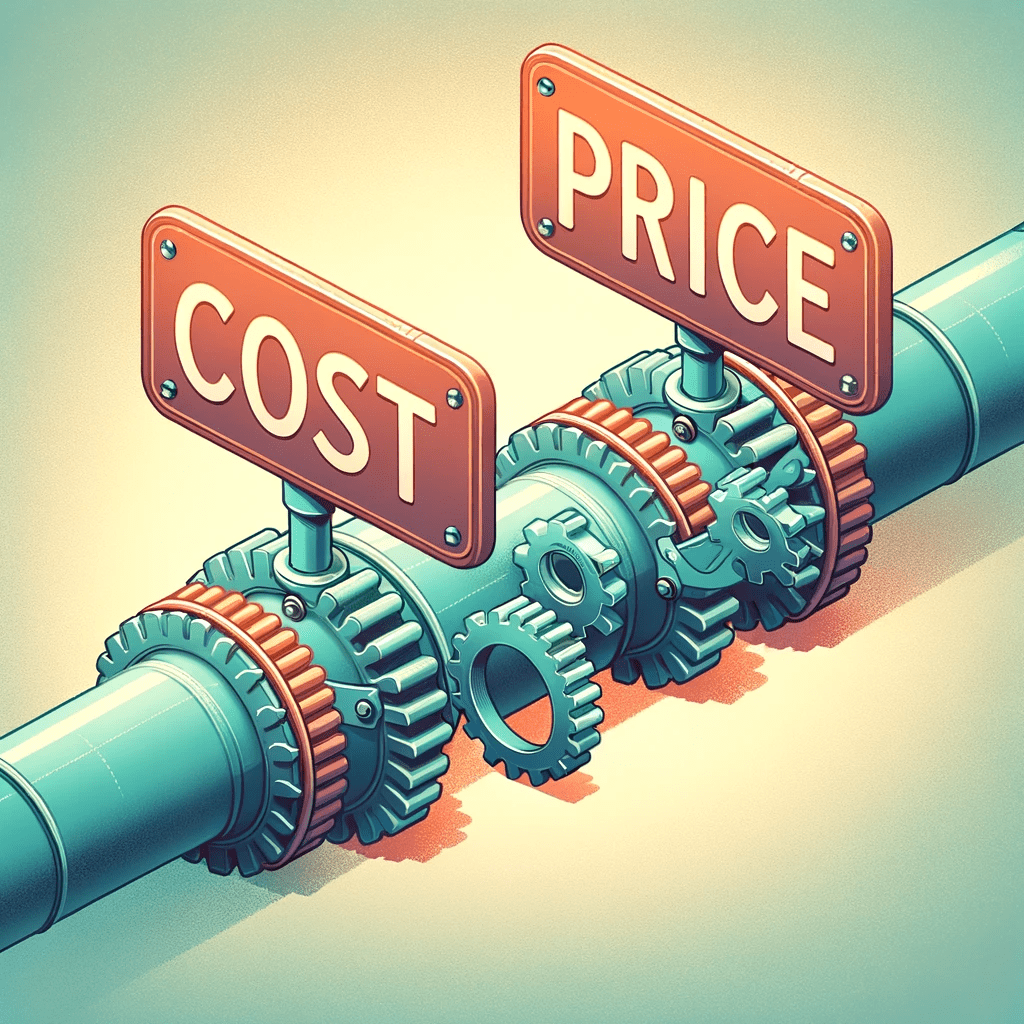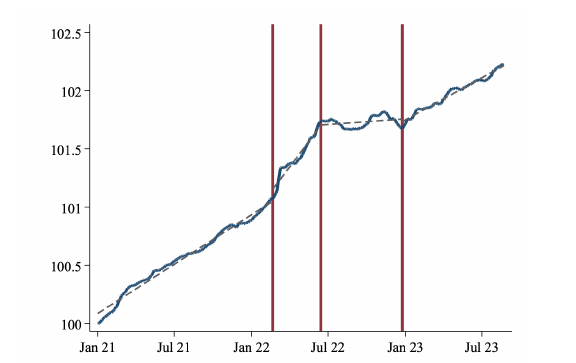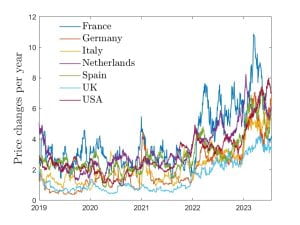
HBS Pricing Lab
We study firm-level pricing decisions and capabilities to understand their micro and macroeconomic impacts.
Our lab collaborates with companies who share access to their proprietary datasets to obtain insights
on firm performance and the broader economic environment.
We are part of the Digital Data Design Institute at Harvard.
Current Projects

Markups and Cost Passthrough along the Supply Chain
Santiago Alvarez-Blaser, Alberto Cavallo, Alex Mackay and Paolo Mengano

Cheapflation and Inequality
Alberto Cavallo, Gaston Garcia Zavaleta, and Oleksiy Kryvtsov

Detecting Turning Points in Inflation:
A Structural Breaks Approach
Alberto Cavallo and Gaston Garcia Zavaleta
Our Team

Alberto Cavallo
Founder & Principal Investigator

Alexander MacKay
Founder & Principal Investigator

Nina Cohodes
Executive Director

Santiago Alvarez-Blaser
Macro Post-Doctoral Fellow

Julian Hidalgo
Micro Post-Doctoral Fellow

Paola Llamas
Research Assistant

Franco Vazquez
Research Assistant

Paolo Mengano
Research Collaborator

Michael Sullivan
Research Collaborator

Gaston Garcia Zavaleta
Research Collaborator
Recent Papers
- Price Discounts and Cheapflation during the Post-Pandemic Inflation Surge
 Alberto Cavallo and Oleksiy Kryvtsov
Alberto Cavallo and Oleksiy Kryvtsov
We study how within-store price variation changes with inflation, and whether households exploit it to attenuate the inflation burden. We use micro price data for food products sold by 91 large multi-channel retailers in ten countries between 2018 and 2024. Measuring unit prices within narrowly defined product categories, we analyze two key sources of variation in prices within a store: temporary price discounts and differences across similar products. Price changes associated with discounts grew at a much lower average rate than regular prices, helping to mitigate the inflation burden. By contrast, cheapflation—a faster rise in prices of cheaper goods relative to prices of more expensive varieties of the same good—exacerbated it. Using Canadian Homescan Panel Data, we estimate that spending on discounts reduced the change in the average unit price by 4.1 percentage points, but expenditure switching to cheaper brands raised it by 2.8 percentage points…. - Markups and Cost Pass-through Along the Supply Chain
 Santiago Alvarez-Blaser, Alberto Cavallo, Alexander MacKay, Paolo Mengano
Santiago Alvarez-Blaser, Alberto Cavallo, Alexander MacKay, Paolo Mengano
We study markups and pricing strategies along the supply chain. Our unique dataset combines detailed price and cost information from a large global manufacturer with matched retail prices collected online for the period July 2018 through June 2023. We show that total markups—reflecting the difference between retail prices and production costs—are stable over time, despite the inflationary period at the end of the sample. Along the supply chain, manufacturer and retail markups are negatively correlated. For the most part, we find similar patterns across countries, though there is substantial heterogeneity in the split of markups between the manufacturer and retailers. Our analysis also reveals divergent pricing behaviors in response to cost shocks. The manufacturer adjusts prices more quickly than retailers and appears to more fully incorporate idiosyncratic cost shocks to specific products. Both types of firms respond more quickly to expected costs than to unexpected costs…. - Large Shocks Travel Fast
 Alberto Cavallo, Francesco Lippi and Ken Miyahara
Alberto Cavallo, Francesco Lippi and Ken Miyahara
We leverage the inflation upswing of 2022 and various granular datasets to identify robust price-setting patterns following a large supply shock. We show that the frequency of price changes increases dramatically after a large shock. We set up a parsimonious New Keynesian model and calibrate it to fit the steady-state data before the shock. The model features a significant component of state-dependent decisions, implying that large cost shocks incite firms to react more swiftly than usual, resulting in a rapid pass-through to prices–large shocks travel fast. Understanding this feature is crucial for interpreting recent inflation dynamics….
Open Positions
Macro Postdoctoral Fellow. We are hiring a macro Postdoctoral Fellow for the 2025-2026 academic year. This position, supervised by Professor Alberto Cavallo, focuses on innovative research in firm-level pricing strategies, pricing capabilities, and macroeconomic impacts on inflation dynamics, leveraging unique large-scale datasets. The fellow will conduct econometric analyses, prepare research for top-tier journals, and collaborate with research assistants and partner organizations. Applicants must hold a Ph.D. in economics (by July 2025) and have expertise in macroeconomic theory, data processing, and statistical programming. The position is hybrid, based in Boston, MA, with potential for renewal based on performance and funding.
